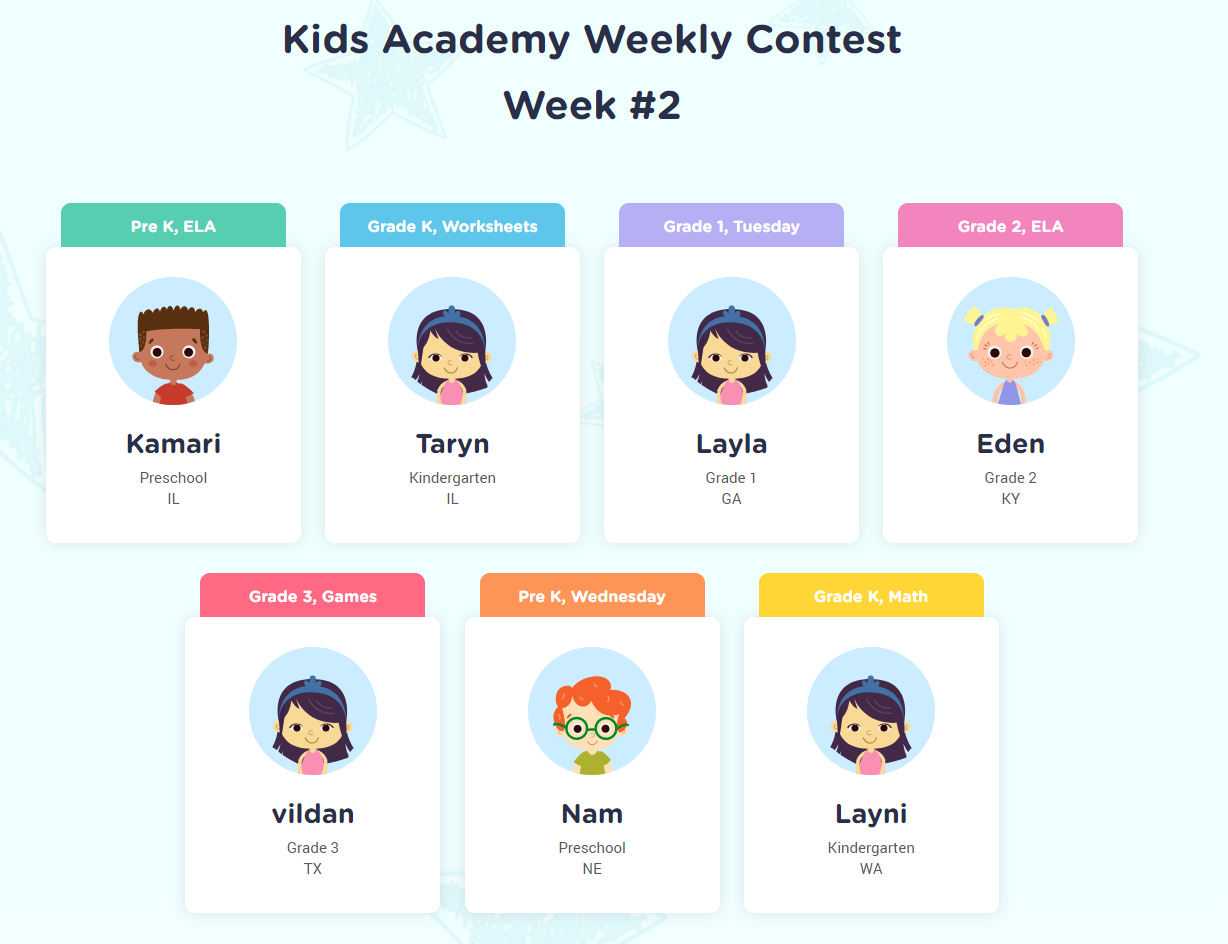Problem-solving practice Normal Worksheets for 6-Year-Olds
5 filtered results
-
From - To
Explore our engaging Problem-solving Practice Normal Worksheets designed specifically for 6-year-olds! These interactive worksheets offer a fun way for young learners to enhance their critical thinking and analytical skills. Each activity is carefully crafted to challenge children while building confidence in their problem-solving abilities. Aligning with educational standards, our worksheets cover a variety of topics, fostering creativity and encouraging independent thinking. Ideal for both classroom and at-home learning, these resources make problem-solving a delightful experience for kids. Download and print our worksheets today to support your child's learning journey and set them on the path to success!
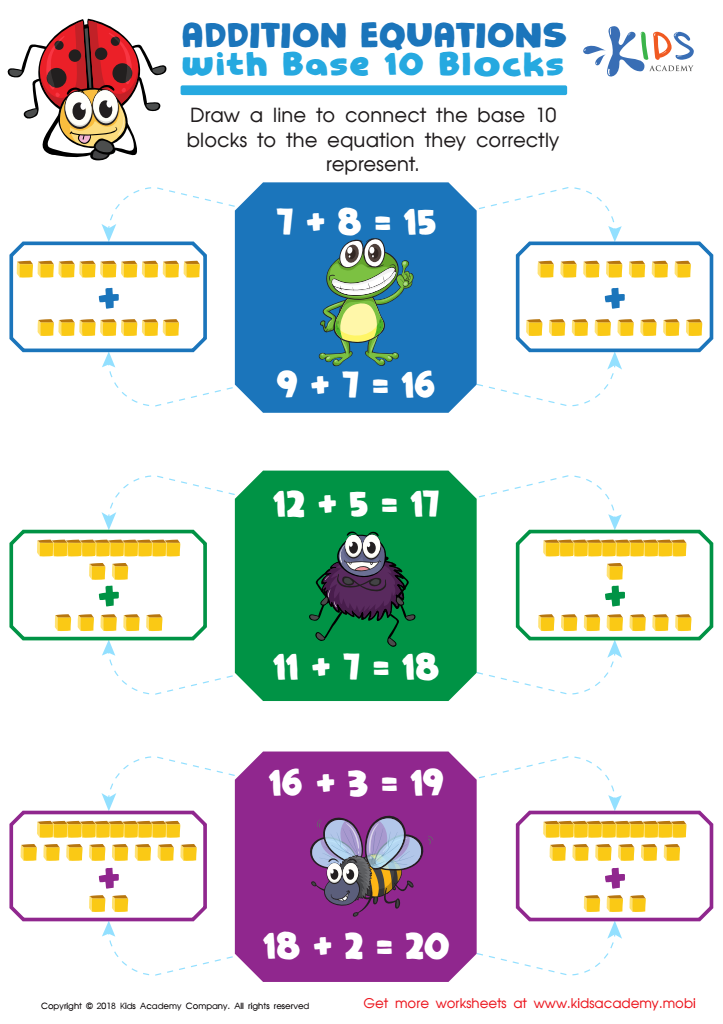

Addition Equations With Base 10 Blocks Worksheet
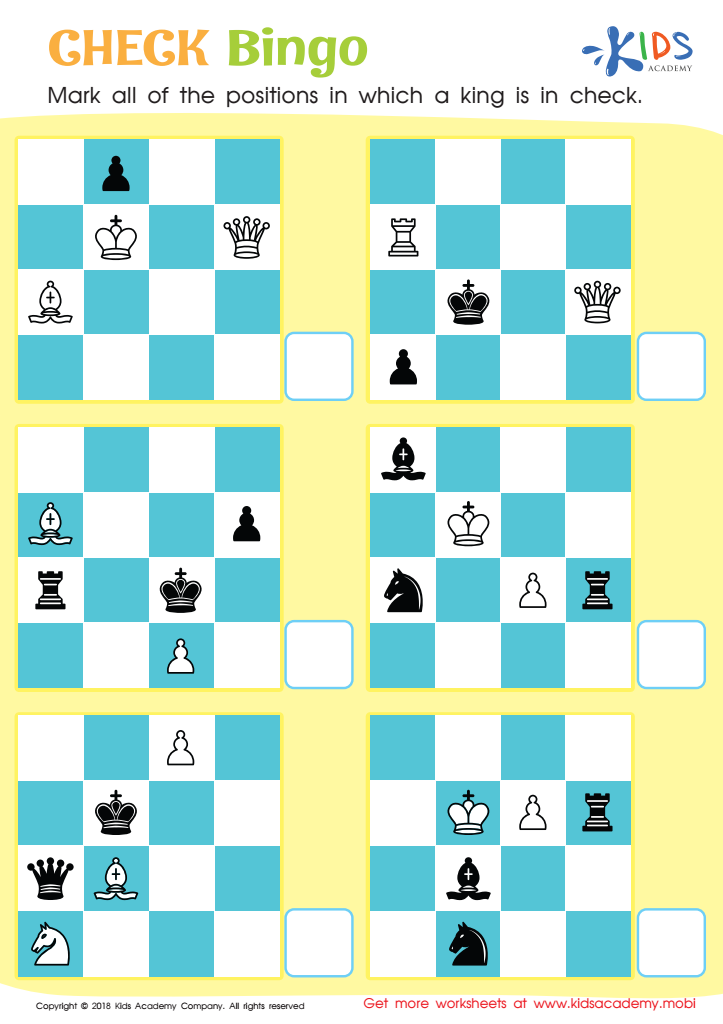

Check Bingo Worksheet
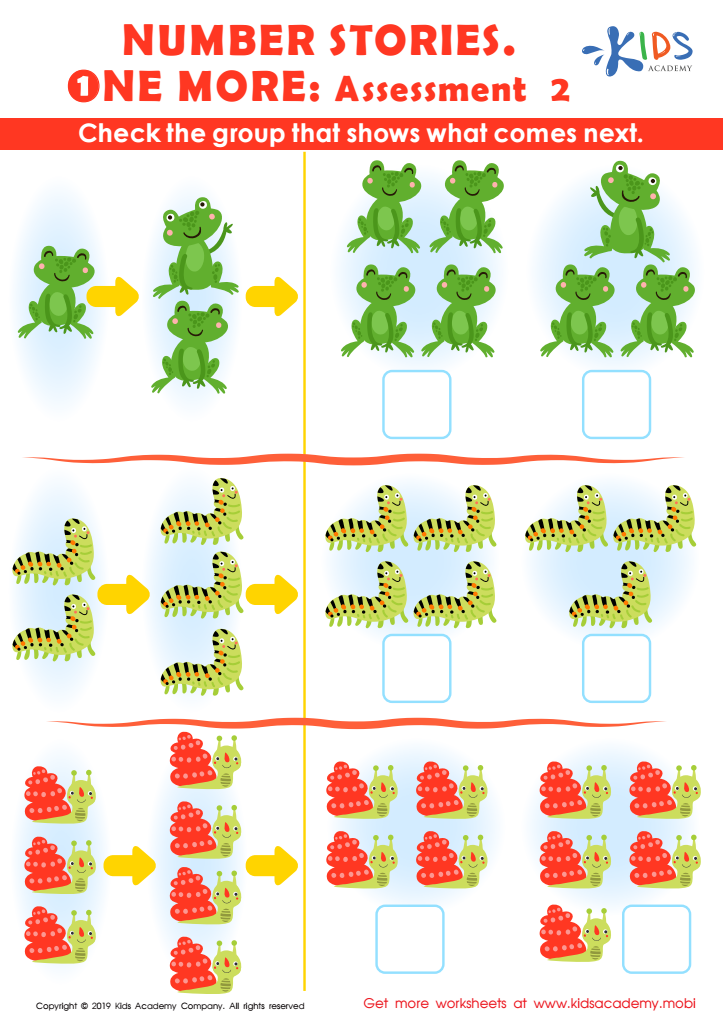

Number Stories One More – Assessment 2 Worksheet
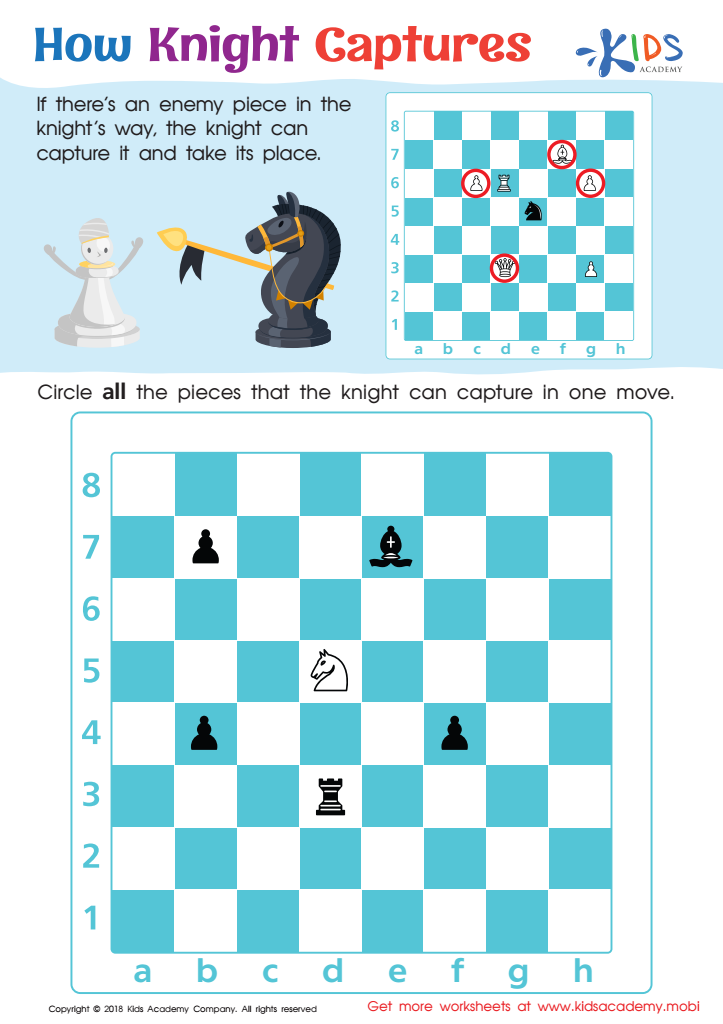

How Knight Captures Worksheet
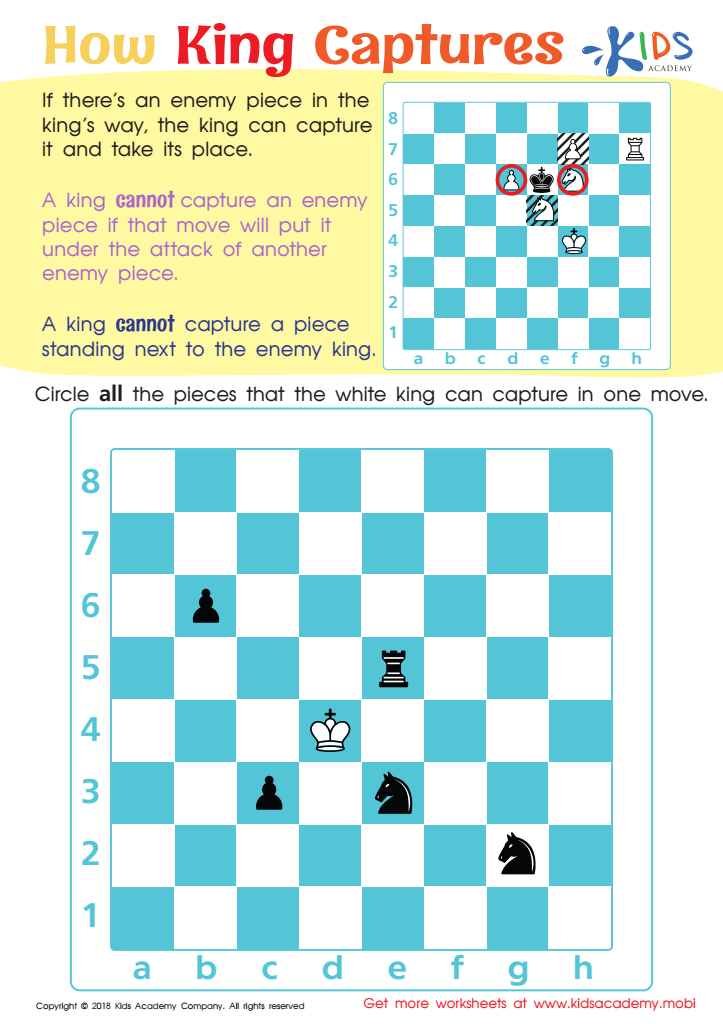

How King Captures Worksheet
Problem-solving practice is crucial for 6-year-olds as it lays the foundation for critical thinking and creativity, essential skills for future success. At this age, children are naturally curious and eager to learn; engaging them in problem-solving activities nurtures that curiosity and encourages independent thinking. When parents and teachers prioritize problem-solving exercises, they help children develop resilience, as learn to approach challenges with a growth mindset and understand that making mistakes is part of the learning process.
Furthermore, problem-solving skills enhance social-emotional development. Collaborative problem-solving activities promote communication, teamwork, and conflict resolution, allowing children to build meaningful relationships. This practice also improves cognitive skills, as these children learn to analyze information, draw connections, and logically reason – abilities that are vital for academic success.
Lastly, in an increasingly complex world, equipping young learners with strong problem-solving skills prepares them for diverse future challenges. Investing time in practicing these skills not only benefits a child’s educational journey but also fosters adaptability and perseverance, which are essential qualities in everyday life. Overall, integrating problem-solving practice for 6-year-olds is a worthwhile effort that secures a brighter, more capable future for them.
 Assign to My Students
Assign to My Students




